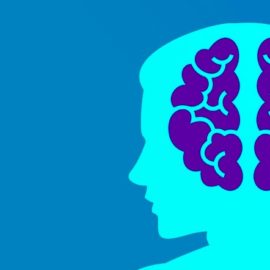

This article is an excerpt from the Shortform book guide to "The Road Less Traveled" by M. Scott Peck. Shortform has the world's best summaries and analyses of books you should be reading.
Like this article? Sign up for a free trial here .
What gets in the way of spiritual evolution? How can you overcome these obstacles?
According to psychiatrist M. Scott Peck, the purpose of life is spiritual evolution. In The Road Less Traveled, he identifies three forces that get in the way: laziness, evil, and the suffering of awareness. An understanding of these obstacles can help you overcome them.
Keep reading to learn about these roadblocks to spiritual evolution.
Obstacles to Spiritual Evolution
There is one final tool available to us on our journey of spiritual evolution. Arguably, it is the most significant, and yet, the least explainable. Grace is the force greater than ourselves that aims to support us to stay on the path to spiritual evolution. It does this by giving you clarity and encouragement along the way through auspicious phenomena like the collective unconscious and serendipity. To develop it, you need to work through any resistance you have to it and be willing to be open to its influence.
Before you can understand grace and its impact on spiritual evolution, you need to understand the roadblocks that grace eliminates. In this chapter, we’ll explore the three core obstacles to spiritual growth. In the next chapter, we’ll look at why grace is the answer to these problems.
Obstacle #1: Laziness
Laziness is the greatest obstacle to spiritual evolution. Discipline is about fighting against laziness. Genuine love is about fighting against laziness. Everything that keeps you from growth can be traced back to laziness.
For an example of laziness in action, consider the story of original sin. God tells Adam and Eve that they can live in this beautiful garden but not to eat from the tree of knowledge. The serpent tells them otherwise, as you know, and Eve eats the apple. What is noticeably absent is an effort from Adam and Eve to first ask God why they can’t eat from the tree. Instead, they listen only to the serpent. Since God represents good and the serpent represents evil, their contradictory advice about the apple tree is a debate between good and evil. This is a debate you have the opportunity to have in your mind all the time, but it’s easy to only partially engage it, or, like Adam and Eve, not engage it at all.
When you don’t engage in the debate between “good” and “evil,” you don’t get “God’s perspective.” Meaning, you don’t listen to the God within you when determining which action to take, whether that be an opportunity to act with genuine love versus toxic love, or an opportunity to make a meaningful change in your life versus remaining the same. We choose not to have these internal debates because to listen to God within us would encourage us to take the course of action that requires greater effort and often more suffering. Essentially, this boils down to laziness. Therefore, it might be said that original sin is laziness.
We all struggle with laziness, no matter how motivated and ambitious we think we are. Fear is often a manifestation of laziness. The root being fear of change and the effort it takes to enact it. Adam and Eve might have been afraid of God’s reaction were they to ask God for an explanation of the apple tree rule. Instead, they took a destructive shortcut and were deceptive.
This relates to growth in a therapy context when you consider that most patients, while in therapy to create change, are afraid of the effort it will take to make those changes. The laziness at the root of this is what makes patients quit. Most patients are not aware of this laziness, because our general tendency is to rationalize it.
Obstacle #2: Evil
In theology, evil is considered the greatest obstacle to God. Science has little opinion on the subject of evil. However, in the context of spiritual evolution, evil is indeed real. There are people in the world who act with hatred and attack goodness. They engage this way with anyone they have power over, not from a place of maliciousness, but from ignorance. The reason they hate the light is that the light illuminates what they are avoiding in themselves. To embrace goodness means to confront badness; to embrace love means to confront laziness or fear. “Evil” people are seeking to avoid the pain of becoming aware.
Evil is the most extreme manifestation of laziness. Love is the willingness to move beyond your ego in order to foster spiritual evolution in yourself and others. It is the opposite of laziness. The difference between evil people and those who are simply lazy is that the generally lazy person will passively avoid effort, but the evil person actively avoids their own growth to the point where they might even kill those who threaten their commitment to avoidance. Evil people seek to protect their sick selves from change at all costs.
Therefore, the definition of evil is the use of force to tear down others (subtly or blatantly) to avoid one’s own spiritual evolution. While regular laziness is nonlove, evil might be called anti-love. The presence of evil is unavoidable because we can assume that as long as laziness exists, there will be people who succumb to the pull of it. The downward flow of laziness and the upward flow of genuine love are conflicting forces, therefore while there will be many people who fall in the middle of that spectrum, there will also be people who exist at the extremes of both ends.
For example, Hitler demonstrated extreme laziness in convincing masses of people that the reason Germany wasn’t reaching its potential was because of the Jewish population, rather than taking the responsibility for the weaknesses of the country and taking loving action to resolve those weaknesses for the betterment of all citizens. Alternatively, Martin Luther King demonstrated extreme genuine love by taking responsibility for the quest for equality (where he could have easily fallen into hatred and blame), fighting for the dignity of all, even knowing he might lose his life in the process.
Obstacle #3: The Suffering of Awareness
The purpose of spiritual evolution is to come into full spiritual awareness. Often, when we make decisions, we are not totally aware of the motivation for the decisions nor the possible consequences. Additionally, it’s possible to make well-intentioned decisions that have perilous outcomes (and vice versa). When we’re certain, that may be when we have the least awareness. When we are uncertain, we are often more aware. Those who seek to fight the inertia of ignorance commit to developing greater awareness. A commitment to developing awareness leads to deeper understanding of the impact of your actions, which leads to greater competence, and this competence allows you to act with spiritual power.
Why Does Awareness Cause Suffering?
As we come to spiritual power, we are all making decisions with varying levels of awareness of how they will impact the world. With higher awareness, you understand that you influence the world beyond those directly impacted by your decisions. For example, when you choose not to show genuine love to a child, that child grows up carrying the results of that nonlove to every one of their interactions, and those interactions impact countless others indirectly.
The greater your awareness, the greater your competence, the greater your obligation to act, and often then, the greater your fear of acting. Overthinking decisions causes overwhelm and you may simply not act at all, which in itself is an action that has an impact. Consequently, spiritual power might also be defined as the ability to continue making strong decisions even as you develop increasing levels of awareness. To be God is to make decisions with full awareness.
Does Full Spiritual Evolution Decrease Suffering?
- Yes, because when you accept suffering, you stop suffering.
- Yes, because when you spiritually evolve, you are genuinely loving, and that capacity for love will increase your experiences of joy.
- Yes, because when you are disciplined, you can achieve mastery, and when you are masterful as a spiritually evolved person, it’s similar to the relationship between childhood and adulthood in that an adult will experience less suffering solving a problem than a child might solving the same problem.
However, the more Godlike your awareness becomes, the more you empathize with God’s position. To come to full consciousness is to experience not just the power, but the pain of full awareness. When you are spiritually evolved, you are competent, disciplined, and loving. This causes you to be of service to the world in ways that eventually require major decision-making or problem-solving. These scenarios create equal opportunity for major pain because making decisions or solving problems from a place of spiritual awareness causes more suffering than making decisions or solving problems with limited awareness.
For example, let’s say there are two managers at an animal shelter, and they each have to decide which animals will be euthanized. Let’s say one manager is spiritually evolved, and the other is not. The spiritually evolved manager is going to suffer more making these decisions because they will be fully aware of the nature and impact of those decisions, whereas the other manager, from limited awareness, may just consider the decision making a job of little emotional consequence.
A Note on Loneliness
A final problem that arises with spiritual power is loneliness. At the height of spiritual power, there may be no one else to blame or to be reassured by or even to get advice from. There is no guarantee that there will be anyone at the same height. You are the sole source of your decision-making. Were it not for the increasing connection with God as you ascend in spiritual power, you would experience a pain of loneliness that would be nearly impossible to shoulder alone.

———End of Preview———
Like what you just read? Read the rest of the world's best book summary and analysis of M. Scott Peck's "The Road Less Traveled" at Shortform .
Here's what you'll find in our full The Road Less Traveled summary :
- The four key elements in the path to enlightenment
- The importance of spiritual competence in relation to mental health
- How you can face challenges and grow through hardship






